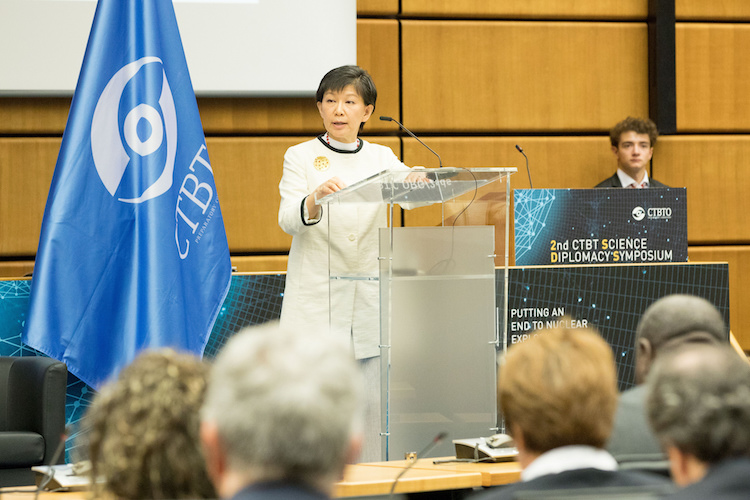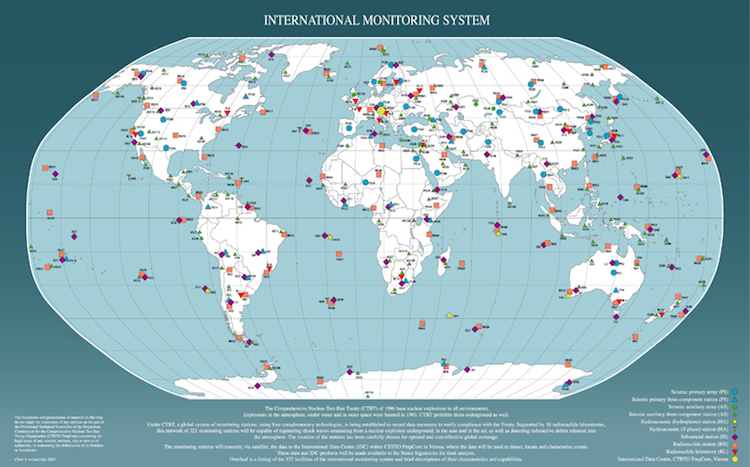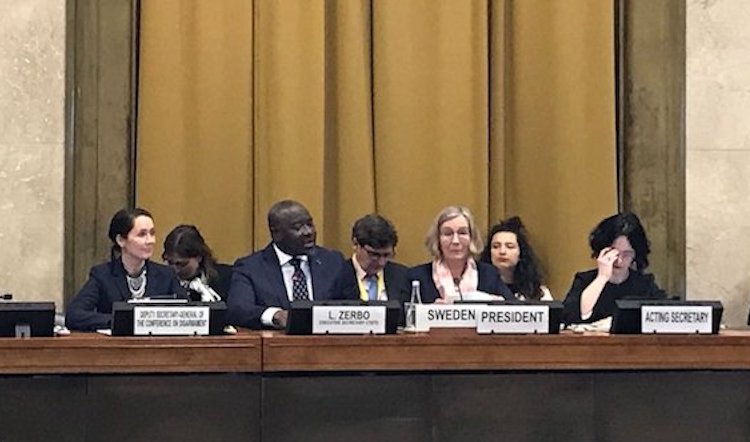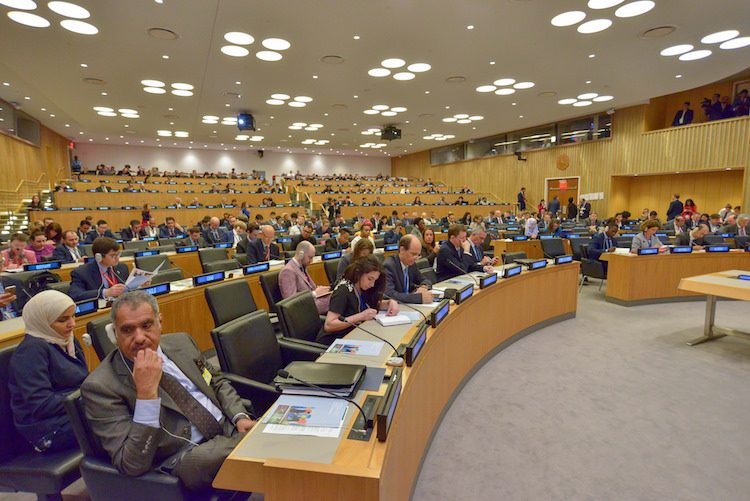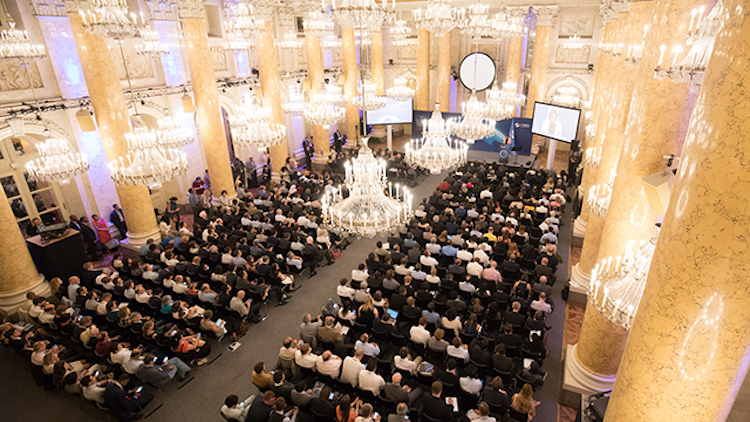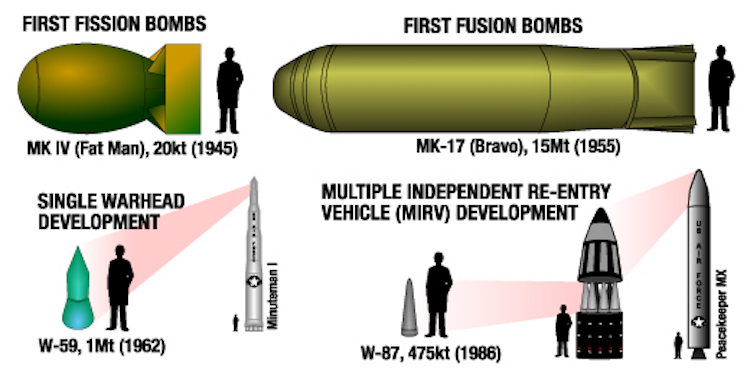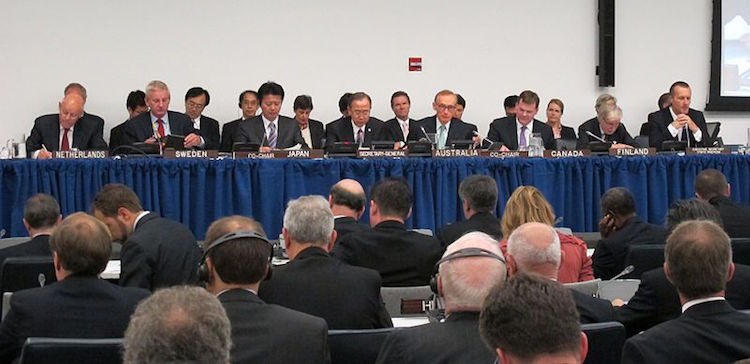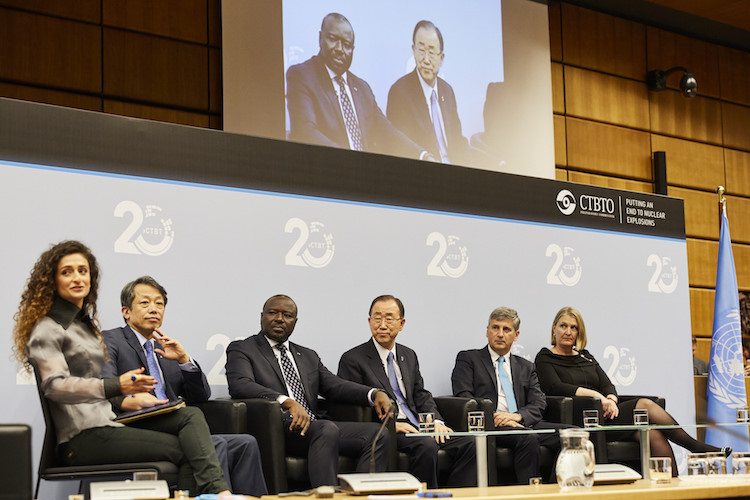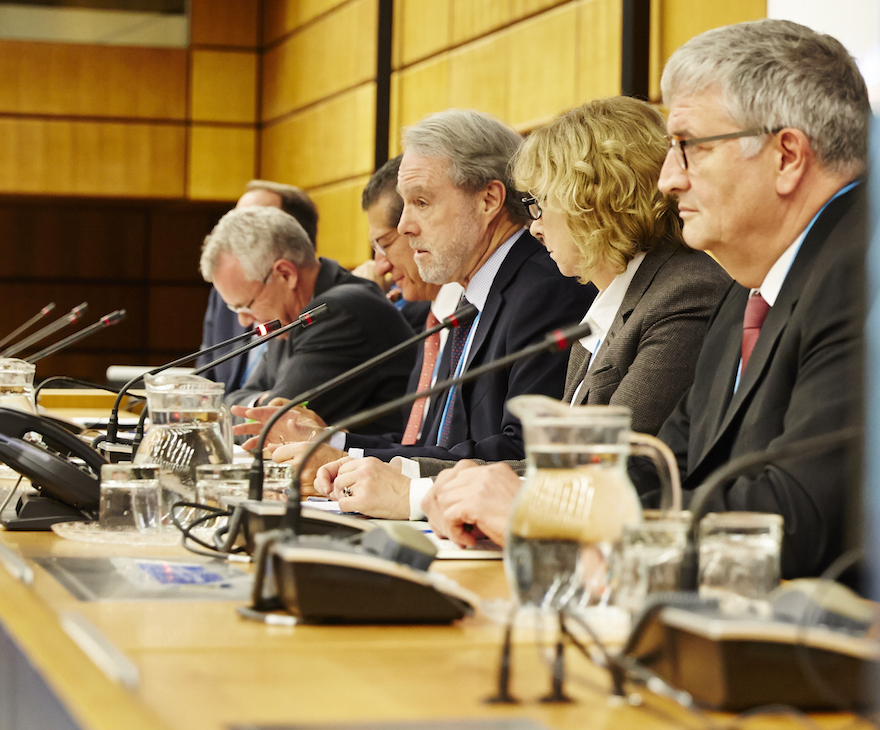Viewpoint by Izumi Nakamitsu The author is High Representative of the United Nations Office for Disarmament Affairs (UNODA). Following are extensive excerpts from her keynote speech on May 25, 2018 at the High Level Session of the Second Comprehensive Nuclear-Test-Ban Treaty (CTBT) Science Diplomacy Symposium from May 21-June 1, 2018 in Vienna. – The Editor. […]
CTBTO Must Credibly Confirm Dismantling & Closure of DPRK Nuclear-Weapon Test Site
By Tariq Rauf * While North Korea has invited journalists from a handful of countries to witness the dismantling and closure of its nuclear-weapon test site at Punggye Ri, only the Vienna-based Comprehensive Nuclear-Test-Ban Treaty Organization (CTBTO) has the required expertise, verification technology and credibility to confirm the closure of the Punggye Ri test site. […]
Action Needed to Ratify the 1996 Nuclear Test Ban Treaty
By Dr Lassina Zerbo The author is Executive Secretary of CTBTO, Preparatory Commission for the Comprehensive Nuclear-Test-Ban Treaty Organization. The following is a slightly abridged and modified text of his address on 26 February to the High-level segment of the Conference on Disarmament, multilateral disarmament negotiating forum where the Comprehensive Nuclear-Test-Ban Treaty (CTBT) in Geneva […]
Conference Calls for Nuclear-Test-Ban Treaty Becoming International Law
By Jamshed Baruah
UNITED NATIONS (IDN) – “A CTBT that is in force would be a milestone on the road to a world free of nuclear weapons. It has the potential to prevent a nuclear arms race and an escalation of regional and bilateral tensions,” said UN Secretary-General António Guterres. He was referring to the Comprehensive Test-Ban Treaty (CTBT) that bans nuclear testing on the Earth’s surface, in the atmosphere, underwater, and underground.
“Make no mistake: we need this Treaty,” said Miroslav Lajcák, President of the UN General Assembly. “I applaud the CTBT Preparatory Commission for raising awareness about the dangers associated with testing and for its partnership with the United Nations,” added Guterres.
Conference Pleads for Nuclear Test Ban Treaty Becoming Law
By Ramesh Jaura
This is the second in a series of two reports on the Science and Technology Conference of the Preparatory Commission for the Comprehensive Nuclear-Test-Ban Treaty Organization (CTBTO) from June 26 to June 30, 2017 in Austria’s capital Vienna. The first article appeared on July 4. – The Editor
NEW YORK | VIENNA (IDN) – At a crucial point in time when the United Nations Conference to negotiate a legally binding instrument to prohibit nuclear weapons, leading towards their total elimination has submitted a draft treaty and the international community is focussed on the North Korean ICBM threat, an international conference has underlined the need for the Comprehensive Nuclear-Test-Ban Treaty (CTBT) becoming law without any further dithering.
The Key to Realizing Trump’s Nuclear Dream is the CTBT
Viewpoint by Brenna Gautam
 Note: Brenna Gautam, a J.D. Candidate at Georgetown University Law Center, is a member of the CTBTO Youth Group. This article appears in cooperation with the Comprehensive Nuclear-Test-Ban Treaty Organization (CTBTO), as part of the initiative ‘Youth for CTBTO’. The views expressed are those of the author and do not necessarily reflect those of the CTBTO. – Editor
Note: Brenna Gautam, a J.D. Candidate at Georgetown University Law Center, is a member of the CTBTO Youth Group. This article appears in cooperation with the Comprehensive Nuclear-Test-Ban Treaty Organization (CTBTO), as part of the initiative ‘Youth for CTBTO’. The views expressed are those of the author and do not necessarily reflect those of the CTBTO. – Editor
WASHINGTON, D.C. (IDN) – “It would be wonderful, a dream would be that no country would have nukes,” President Donald Trump announced, “but if countries are going to have nukes, we’re going to be at the top of the pack.”
The announcement can be neatly split in two. The first, wistful for nuclear disarmament, falls in line with the history of Republican successes in arms reductions: while Democrats since Kennedy have frequently proposed reductions, it has been Republican administrations that ultimately put these into effect.
A Renewed Effort to Push the Nuclear Test Ban Treaty
Analysis by Sylvia Mishra *
 This article first appeared in THE WIRE. It is being reproduced as part of IDN‘s cooperation with the initiative ‘Youth for CTBTO’. The views expressed are those of the author and do not necessarily reflect the views of the CTBT. – Editor
This article first appeared in THE WIRE. It is being reproduced as part of IDN‘s cooperation with the initiative ‘Youth for CTBTO’. The views expressed are those of the author and do not necessarily reflect the views of the CTBT. – Editor
VIENNA – Twenty years have passed since the Comprehensive Nuclear-Test Ban Treaty (CTBT) opened for signature in 1996. Since then, the Comprehensive Nuclear-Test Ban Treaty Organization (CTBTO) has achieved a lot – 183 states have signed the treaty and 164 have ratified it, including some but not all nuclear weapon states.
However, the United States, China, Israel, Iran and Egypt have signed but not ratified the treaty, while India, Pakistan and North Korea have not signed it. A stringent verification regime, in compliance with the treaty’s provisions, has been built and other civil applications of the treaty’s international monitoring systems (IMS) are continuously being developed.
UN Chief Calls CTBTO 20 Anniversary ‘a Call to Action’
Addressing a CTBTO Panel in Vienna, United Nations Secretary-General Ban Ki-moon said on April 27: “When I was serving as the representative of the Republic of Korea I had the honour of presiding as Chairman of CTBTO. While assuming my chairmanship, I made small talk, saying: “My name is Ban Ki-moon; it is pronounced Ban, it is spelled B-a-n. While I will encourage constructive dialogue, I will ban using my name [for] nuclear tests”. Since then, my nickname has been “Mr. Nuclear-Test-Ban”. So, I will still carry that name, so I will try to ban any nuclear test. So, we ask [for] your strong commitment on this.”
Disarmament Talk with CTBTO Executive Secretary Dr Lassina Zerbo
During the symposium ‘Science and Diplomacy for Peace and Security: the CTBT@20’ from 25 January to 4 February 2016 at the Vienna International Centre in Austria, IDN-InDepthNews (IDN), flagship ofthe International Press Syndicate (INPS), interviewed Dr. Lassia Zerbo, Executive Secretary of the Comprehensive Nuclear Test Ban Treaty Organization (CTBTO). The interview focuses on what the CTBT is about, why it has not yet entered into force, and what the CTBTO is doing to overcome hurdles on way to its becoming a de jure global treaty.
Nuclear-Test-Ban Debate Focuses on Iran and North Korea
VIENNA (IDN) – Iran and North Korea dominated the landmark symposium ‘Science and Diplomacy for Peace and Security’ organised by the Comprehensive Nuclear-Test-Ban Treaty Organization (CTBTO) end of January in Vienna, the capital of Austria.
As chance would have it, ahead of the event, on January 16, U.S. President Barack Obama revoked a 20-year system of sanctions against Iran and Federica Mogherini, the European Union High Representative for Foreign Affairs, announced the lifting of EU economic blockade against Tehran.

